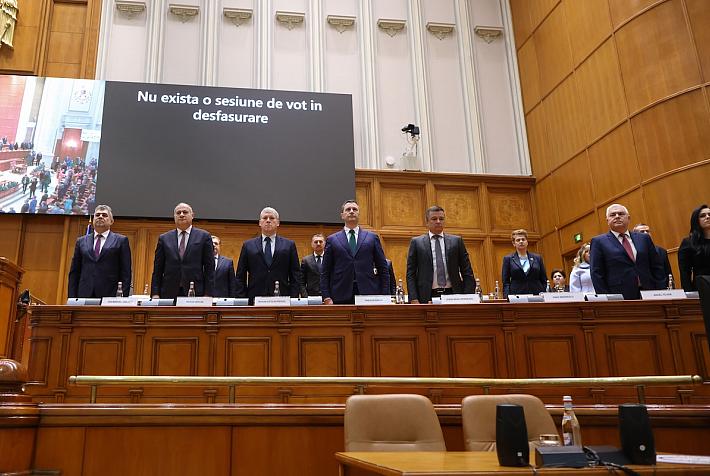ECOFIN approves Romania's 7-year fiscal plan but EC expects specific tax reforms

Romania's budgetary-structural plan was approved by the ECOFIN Council on January 21, alongside similar plans for 20 other EU member states, minister of investments and European projects Marcel Boloș announced on Facebook.
Romania's budget deficit hit 8.6% of GDP in 2024, nearly three times the 3% upper limit, in the fourth year since the country entered the Excessive Deficit Procedure (EDP).
The ruling coalition that drafted the fiscal consolidation plan remained in office after the December 1 parliamentary elections and confirmed plans to cut the gap to 7% of GDP in 2025. The 2025 budget planning is still expected by the end of January, in the context of the fiscal consolidation package endorsed at the end of 2024 does not entirely secure the desired consolidation this year.
"The fiscal budget plan aims to stabilize Romania's public debt in a context in which Romania continues to be among the top in the EU in terms of public investment levels - over 7% of GDP, reducing the budget deficit to below 3% during the 2025-2031 period and creating the premises for the sustainability of public finances," said minister of finance, Tánczos Barna, who attended the meeting, as reported by Ziarul Financiar.
The Council recommends that Romania should put an end to the excessive deficit situation by 2030. It should ensure that the nominal growth rate of net expenditure does not exceed 5.1% in 2025, 4.9% in 2026, 4.7% in 2027, 4.3% in 2028, 4.2% in 2029 and 3.9% in 2030.
The approval allows Romania to carry out EUR 90 billion worth of investments over the next three years, targeting infrastructure, healthcare, education, and the green transition. It shields Romania from drastic fiscal measures that could hinder economic growth, minister Bolos stressed.
A credible fiscal consolidation plan should also reassure investors about Romania's economic outlook, tame surging bond yields, and prevent negative actions by rating agencies. Fitch already cut in December, amid political turmoil, the outlook on the country's fragile BBB- sovereign rating placing its debt closer to the junk region.
The European Commission expects Romania to draft and enact specific tax reforms by April 1.
The Commission gave its green light on Romania's fiscal consolidation plan last November under the European Semester report, stressing that Romania should draft and enact the specific tax reforms aimed at supporting the fiscal consolidation by April 1, 2025.
Romania should prepare a report, building on the World Bank report on taxation prepared under the Resilience Plan PNRR (milestone 205), establishing two scenarios for the tax reform, with fully specified measures by April 1, 2025, according to the set of reforms and investments that underpins an extension of the adjustment period to 7 years for Romania endorsed by the European Commission under the European Semester on November 26.
Measures should cover all areas of taxation and social contributions.
Implementation and entry into force of the measures should be done by April 1, 2025, at the latest, according to the Recommendations published by the European Commission.
Minister Boloș commented on the ECOFIN's approval on a highly positive note.
"This decision guarantees our country's continued development, protecting essential investments and ensuring long-term financial stability," he said.
Without this plan, he highlighted that Romania would have been compelled to implement steep budgetary adjustments, including massive spending cuts and tax hikes, within four years - a move that could have derailed its development trajectory.
Romania joins several countries, including France, Spain, Italy, and Finland, in extending the fiscal adjustment period to seven years, delaying the target for budgetary compliance to 2031.
iulian@romania-insider.com
(Photo source: Facebook/Marcel Boloș)













